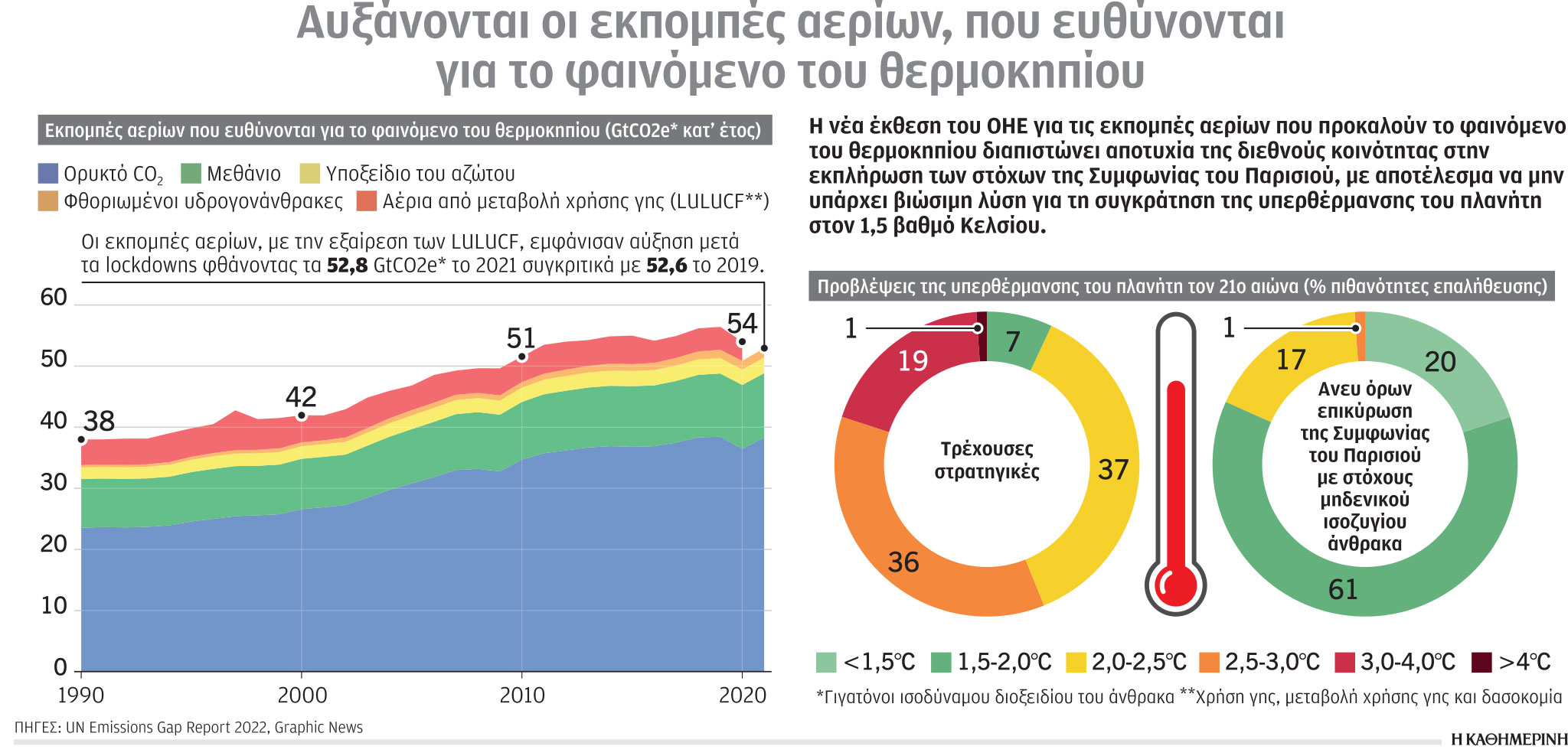
The UN Climate Change Conference (COP27) kicked off yesterday in Sharm El Sheikh, Egypt, with more than a hundred leaders from around the world attending. Its main goal is to find common solutions to curb climate change and prevent further increases in global temperatures.
The current situation and the challenge that the climate crisis poses for the future were vividly outlined in his opening speech by UN Secretary-General António Guterres. “We are on our way to climate hell,” he stressed. “In the coming days, the world population will reach a new milestone and exceed eight billion. What will we say about what we have done to our planet? Today we are all fighting for our lives and losing them. Emissions of gases responsible for the greenhouse effect are constantly rising, as is global temperature. The planet is rapidly approaching a tipping point that will make climate chaos irreversible. We are on our way to climate hell and our foot is stuck on gas.”
Denying his speech, the UN Secretary General stressed that the goal of keeping the temperature rise to 1.5 degrees Celsius survives “on mechanical support” and that we are approaching the point of no return. Also setting goals for the UN Climate Change Conference (COP27), Guterres pointed to the need for “an agreement between developed and developing countries, a climate solidarity pact, so that all countries make efforts to achieve the goal without exceeding the increase in temperatures above 1.5 degrees Celsius” , emphasizing that the two most powerful economies in the world, the United States and China, bear the greatest responsibility for the successful conclusion of the treaty. “The world community has two options: cooperate or perish. Either the climate solidarity agreement will become a reality, or we will collectively sign an independent agreement,” he concluded.
economic solidarity
“The world community has two options: cooperate or perish,” G.G. emphasized. from the podium of the conference. UN.
French President Emmanuel Macron has spoken out about the need for climate equity, urging world leaders to avoid divisive environmental politics. “We must adopt a program of economic solidarity before asking countries to fulfill their 12 year commitments to curb climate change, and the richest countries to find a way to allocate $100 billion to the poorest countries so they can adapt to new climate conditions.” President Macron also stressed that the international community should not deviate from its climate goal because of the war in Ukraine. For the first time, the COP27 agenda included the need to compensate countries vulnerable to climate change for its dramatic impacts. This is a topic that was considered “taboo” in developed countries, which are also the biggest polluters. Analysts, however, note that the final decision on this issue will not be until 2024. The French President nevertheless congratulated the leaders of developing countries for their courage in advancing the issue of compensation for disasters caused in their countries by the climate. change.
British Prime Minister Rishi Sunak, taking the floor, said the war on climate change could be a “global mission of clean growth and jobs”, while he is expected to announce programs to protect forests and develop green technologies worth £200m. developing countries, urging world leaders to “invest faster and more aggressively in clean forms of energy” to prevent climate chaos. As part of the conference, the British Prime Minister met with his Italian counterpart Georgia Meloni, with whom they discussed immigration issues.
Lack of land for olives
Finally, the dramatic impacts of climate change are highlighted in a study prepared by the University of Córdoba in southern Spain and the Portuguese Research Center for Geospatial Sciences, which examined whether the oil industry could adapt to new climate conditions. Scientists have concluded that prolonged drought and warmer winters will significantly reduce the land available for growing olives, and by the end of the century, olive production will decrease by 30%.
Reuters, AP
Source: Kathimerini
Anna White is a journalist at 247 News Reel, where she writes on world news and current events. She is known for her insightful analysis and compelling storytelling. Anna’s articles have been widely read and shared, earning her a reputation as a talented and respected journalist. She delivers in-depth and accurate understanding of the world’s most pressing issues.